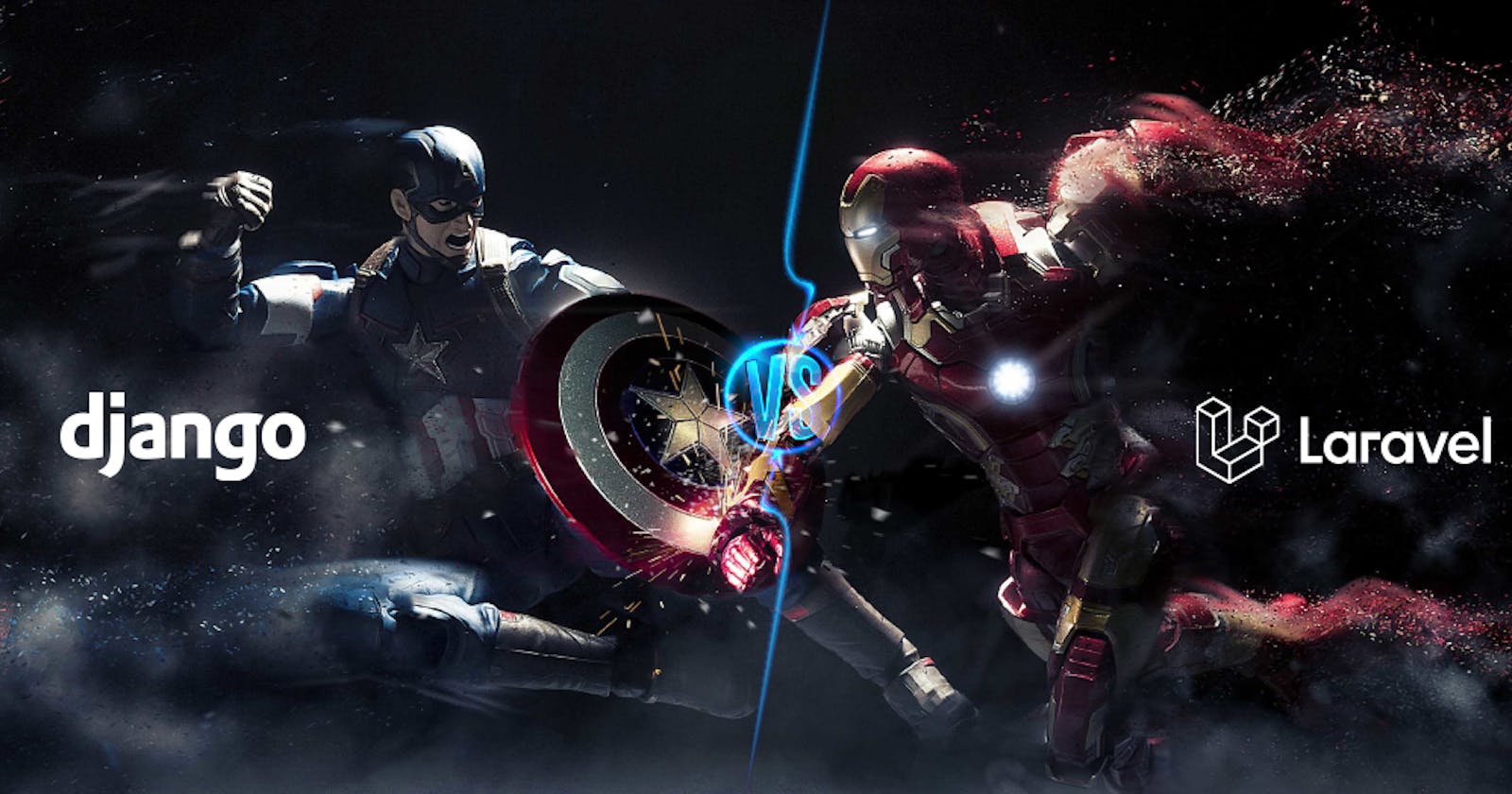Imagine your city is under attack and Thanos is destroying building one after one. You are on the verge of a collapsing building and you have only choice to choose between Captain America and Iron Man to rescue you.
On the one hand, you have Captain America who is the oldest and wisest having lived throughout history. On the other hand, you are having Iron Man has a high IQ and smarter than other Avengers with an arc reactor on its side that doesn’t let him killed. Choosing one of the best superheroes is bewildering!
The same confusion could happen for businesses while selecting frameworks- out of Laravel and Django. Both these frameworks are popular and entrusted for their technological advancements and reliability.
Laravel
Created in 2011 by Taylor Otwell, Laravel is a PHP written open source framework used widely for its technological advancements. Laravel 11’s features and tools have stormed the internet making developers and businesses buzz.
Based on Symfony, Laravel manages different server-side processes like HTML authentication, templating, caching, routing, and much more. With Laravel it is possible to develop customized backend logic, reusable PHP components or libraries, pre-defined architectures, full-stack apps, and SaaS products.
Features of Laravel:
MVC Architecture Support
Elegant Syntax
Artisan CLI
EORM (Object Relational Mapper)
Django
Released in 2005, Django is an open-source battery-included web framework written in Python. Django, a high-level framework for the backend, follows Model-View-Template (MVT) architecture.
Django facilitates effortless as well as quick development of web applications with fewer codes encouraging clean and pragmatic design making maintenance easy for businesses. Having built-in SQLite as a database support, Django has readable syntax making it lightweight and flexible to utilize in development as well as testing.
Features of Django:
SEO Friendly
Versatile
Extensible
Secure & Functional
Compatibility and Scalability
Find out more: https://bit.ly/3p5ggFj 🚀

